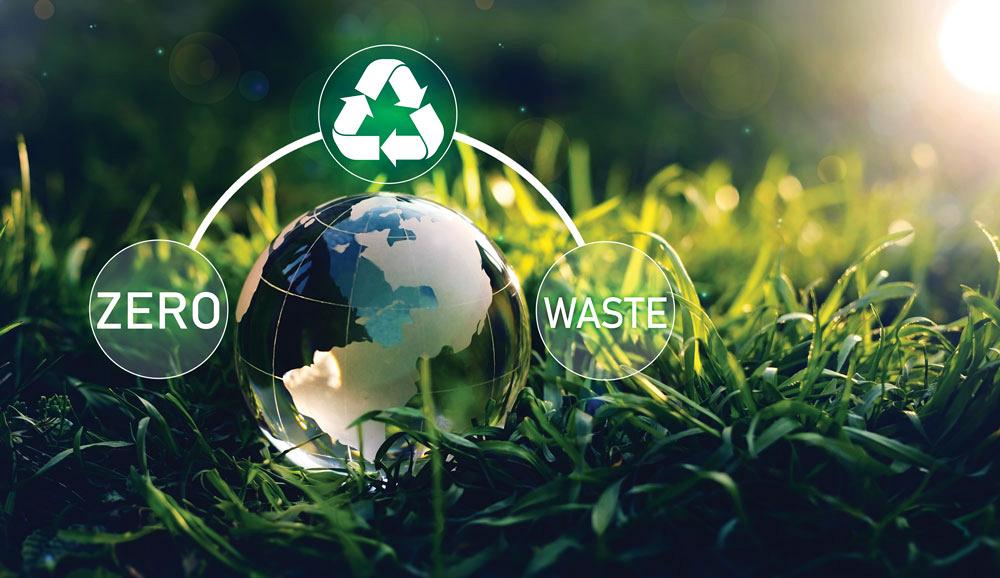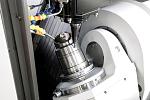Founder/CEO
- FMA
- The Fabricator
- FABTECH
- Canadian Metalworking
What role does maintenance play in sustainability?
A manufacturing company’s sustainability plan must include the maintenance team
- By Bryan Christiansen
- September 13, 2022
The question of maintenance’s role in a manufacturer's sustainability plan is not an easy one to answer. It depends on the company, the products and services it offers, and its specific circumstances.
A sustainability plan helps ensure that your company continues future operations without harming the environment and depleting resources.
Maintenance is essential for your company's sustainability plan because it affects the longevity of equipment and systems. Being “sustainable” means that you must expend fewer resources on replacements and repairs and release fewer environmental emissions.
Many ways exist in which the maintenance department supports a company’s sustainability plan.
1. Reduce Emissions
According to the Environmental Protection Agency (EPA), manufacturing companies produce 24 per cent of greenhouse gas emissions, making them the third highest source of air pollutants. For this reason, it is necessary to control your gas emission by ensuring that air filters operate effectively to purify gasses before they are released.
You can also control the greenhouse gas emission in your company by maintaining natural and artificial carbon sequestration. By using manufactured carbon sinks, you can capture carbon dioxide released into the atmosphere and store it underground.
Shell, one of the largest oil and gas producers in the world, has developed carbon sinks as one of its main strategies to reduce carbon releases. The company aims to reduce carbon emissions by 41 tonnes by 2030 using carbon sinks and other strategies, such as investing in green power generation.
2. Reduce Waste
Proper maintenance helps you avoid an untimely breakdown during production, ensuring the manufacturing process is completed smoothly. You also should reduce the waste produced in repairing your company’s machines and other assets, such as oil spillage and non-recyclable unfinished products.
To avoid costly repairs amounting to increased waste, implementing a lean maintenance strategy is a good idea. This strategy uses the reliability-centred maintenance (RCM) to monitor the operation of your machines and the entire manufacturing system, alerting you whenever there is a risk of machine breakdown.
3. Energy Conservation
Maintaining your company’s machines by periodically lubricating and servicing the electrical wiring system helps with energy conservation and cuts costs.
Poorly lubricated machines require more energy to run the movable parts resulting in too much power usage. Also, you should inspect the building’s electrical wiring system to check for power loss caused by cable resistance.
Energy conservation enables your company to achieve sustainability by reducing the demand for power from power plants and, in turn, minimizes emission pollutants caused by fossil fuel combustion.
You should find appropriate maintenance measures to reduce energy, such as replacing high-power-consumption parts with power-efficient ones.
4. Improve Employee Health and Safety
You should work to improve the health and safety of your employees to ensure your plans to run a sustainable company are successful. Training your employees on essential skills such as safely handling waste and conserving energy is one of the best ways to keep them safe and healthy.
When your employees are healthy and safe, they work extra hard to ensure that your plans to run a sustainable company are implemented. It is best if you also upskill your employees to effectively use modern technologies and handle toxic agents in the manufacturing process.
5. Increase Company Compliance
You will be able to adhere to most compliance policies by ensuring your company’s equipment is working effectively. Properly maintaining your company’s equipment enables you to maintain a clean environment through reduced power consumption, waste, and greenhouse gas emissions.
Maintaining equipment enables you to comply with safety standards, which state the workers’ rights in all workplaces. Servicing your company’s machines and equipment reduces the risk of accidents in the manufacturing process and helps keep your employees safe.
Additionally, machines in good working order do not cause excessive environmental pollution through the noise and excess gas production. You may suffer huge fines and company closure if you don’t meet the required safety standards.
You should check the changing rules and regulations to ensure your company doesn’t violate them. To maintain compliance, supervise your equipment to ensure it operates efficiently and replace parts leading to pollution.
Maintenance should be a priority if you seek to achieve a sustainable company. You reduce environmental damage such as greenhouse gas emissions, excessive consumption of energy, and noise pollution by ensuring your equipment is in good condition.
Develop appropriate strategies for maintaining your company’s machines and assets, such as regularly inspecting equipment to ensure it’s not faulty and using modern maintenance systems like lean maintenance.
Bryan Christiansen is the founder/CEO of Limble CMMS, 3290 W. Mayflower Ave., Lehi, Utah 84043, 801-851-1218, www.limblecmms.com.
subscribe now


Keep up to date with the latest news, events, and technology for all things metal from our pair of monthly magazines written specifically for Canadian manufacturers!
Start Your Free SubscriptionAbout the Author

- Industry Events
Automate 2024
- May 6 - 9, 2024
- Chicago, IL
ANCA Open House
- May 7 - 8, 2024
- Wixom, MI
17th annual Joint Open House
- May 8 - 9, 2024
- Oakville and Mississauga, ON Canada
MME Saskatoon
- May 28, 2024
- Saskatoon, SK Canada
CME's Health & Safety Symposium for Manufacturers
- May 29, 2024
- Mississauga, ON Canada





















